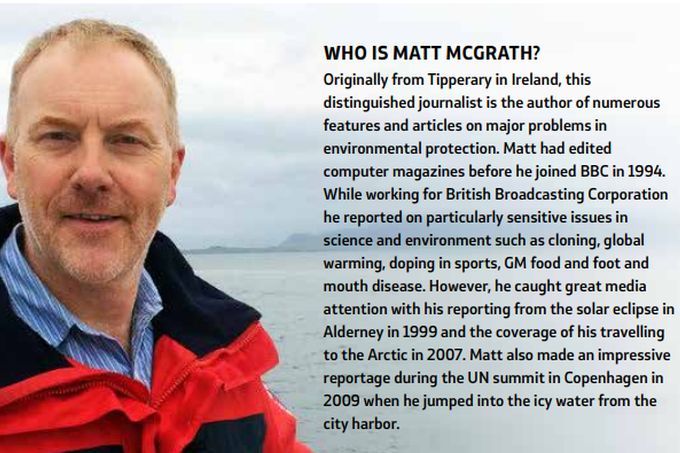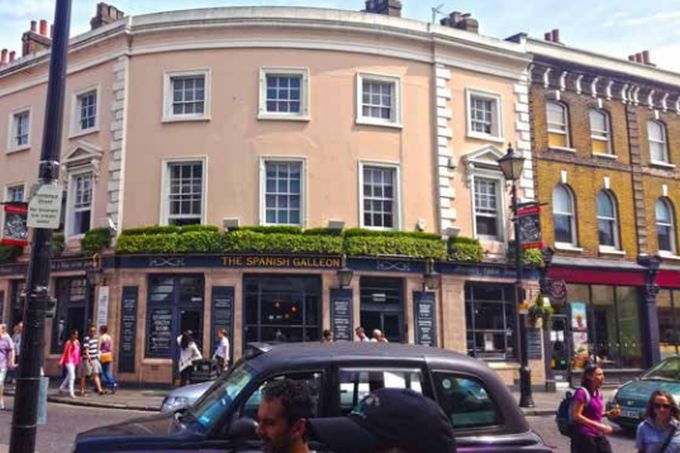
With Matt McGrath, BBC journalist specialized in reporting on science and ecology, we discussed the steps that are being taken in the United Kingdom to alleviate the apparent climatic changes caused by the increased concentration of carbon dioxide.
Ever since the European Commission warned the government of the United Kingdom about the poor quality of air in 16 mainly city areas, threatening with the legal proceedings to be pursued before the Court of Justice if the British authorities do not take urgent measures such as reducing the volume of traffic, switching to electric vehicles and reducing the emissions of gas emission from diesel vehicles, there has been a lot of controversy in the British media about the major effects of the immediate measures. The London Mayor Sadiq Khan announced the impending implementation of one of the strictest standards for the emission of harmful gases, and that also involves a new levy that the owners of diesel and petrol vehicles produced before 2005 and not complied with the Euro 4 standard, would have to pay for driving through the central part of London. Opponents of the announced measures are largely arguing that the air in the city won’t become cleaner and the desired outcome won’t be attained, due to the fact that of all the vehicles passing through the main streets of this metropolis merely 7% belong to a group affected by this additional charge.
EP: What problems have the authorities been facing in the attempt to reduce pollution in urban areas, most importantly in London, where high concentrations of nitrogen oxide were measured?
Matt McGrath: The issue in the UK particularly has become acute because of the incentives the government gave to car purchaser back in the mid 90’s to buy diesel cars and now about the half of the cars in UK are diesel. It is not only about the private drivers – there are vans, taxis and all those heavy goods vehicles… So, most of the local governments are trying to tackle the issue by looking the other way, not by tackling it. It is only because of the court cases that made them do something about the pollution problem. London is global city with millions of people who live and work there, and the majority of the government officials are aware of the possible growth in number of lawsuits. The new mayor is undoubtedly trying to solve the problem, so he has introduced the measures which created a huge low emission zone in the city, and the aforementioned additional levy for older vehicles coming into the central zone will be introduced during this year. There’s no doubt it will hugely contribute to the pollution reduction. As far as other communities, or the rest of the UK, it is more difficult to introduce the changes. So for example, last year central government informed the local authorities they have three million pounds to tackle the air pollution problem which should be distributed among all the local governments, but London alone spent 180 million pounds. So, the government doesn’t want to deal with this in a comprehensive way, local governments have the responsibility but lack resources, so at the moment the problem falls between the two. Right now, there is a needle gun being held at the government’s head and they will have to do something about it and what they will do nobody knows.
EP: One way to reduce the emissions of harmful gases is also to increase the number of electric vehicles. What kind of incentives does your government give for purchase of these vehicles?
Matt McGrath: The buyer gets the grant of about 5,000 pounds. One must know that most of our motorways are electrified so drivers of electric car can travel around the country and find charging station every 20 miles. No wonder the sales of electric cars are going up. Although it has gone nearly well, it still can’t measure up to the market in Norway, which is the world leader in this field. Recently, I have heard an interesting story from my colleague who bought a petrol car and surprisingly enough, he waited for its delivery. Not so long ago, diesel car was usually sold as a family car, and generally you would have to wait for its delivery, and nowadays you have to wait for petrol car the whole six weeks. There is a change taking place in the mentality, people are moving away from diesels back to petrol, or back to hybrids, whose sales have gone pretty well. I really think we are witnessing the change in people’s minds. Nowadays, people think more about the pollution and they are more concerned about it because their children ride in family cars that go on diesel, or go to school by buses which also use diesel, so in that way they are exposed to harmful gases more often than not. I think all of this has led to a breakthrough and the idea of buying hybrid or electric vehicle is even more acceptable. Having taken into account all the facts, the United Kingdom is today cleaner than it was 20 years ago. The air is also cleaner.

EP: How much does the UK use renewable energy sources?
Matt McGrath: Last year we got 20% of electricity from renewable sources, out of which solar energy made the largest share. We also got 20% from nuclear power plants and all other sources provided the rest of energy we needed. Due to its position, our country can use the power of the wind, both on offshore and onshore wind farms. When it comes to biomass, there is no shortage of this resource in our country, but its use raises a lot of questions since it is produced by cutting and burning trees.
EP: What needs to be done in one country in order to have more electric cars on roads?
Matt McGrath: It takes a more integrative approach and strategy if you want to have more electric cars. It is necessary to develop the electric car market, but the situation in this field depends also on other things, so we have to wait for certain changes to happen: batteries need to be better; Tesla has to make a new, cheaper vehicle. Skoda made an announcement at the beginning of this year that by 2020 they would have all hybrid cars, and that is very good news. I’m sure we’ll be eyewitnesses of a massive change over the next 10 years. There will also be self-driving cars, which means that the program, instead of driver, will be responsible for driving.
EP: Lastly, do you find realistic the expectation for the Republic Ireland to stop using fossil fuels for electric energy production by 2030, as it has been announced?
Matt McGrath: The Republic of Ireland is in a position to have more energy than it can use, either from wind, coal or some other source. As for climate and eventual changes which would be caused by shifting to renewable energy sources, the big issue is that Ireland is an agricultural country, and animals, especially cows, could be in danger if they build power plants which use wind, water and other sources. It is possible to get to that point, since they have various ways for electricity production, but I don’t think Ireland will be the top of the class when it comes to the giving up the use of fossil fuels by given deadline. Even if they reach the goal, it would be just a portion of the picture.
This interview was originally published in the eighth issue of the Energy Portal Bulletin, named ECOMOBILITY.
Interview by: Tamara Zjačić

